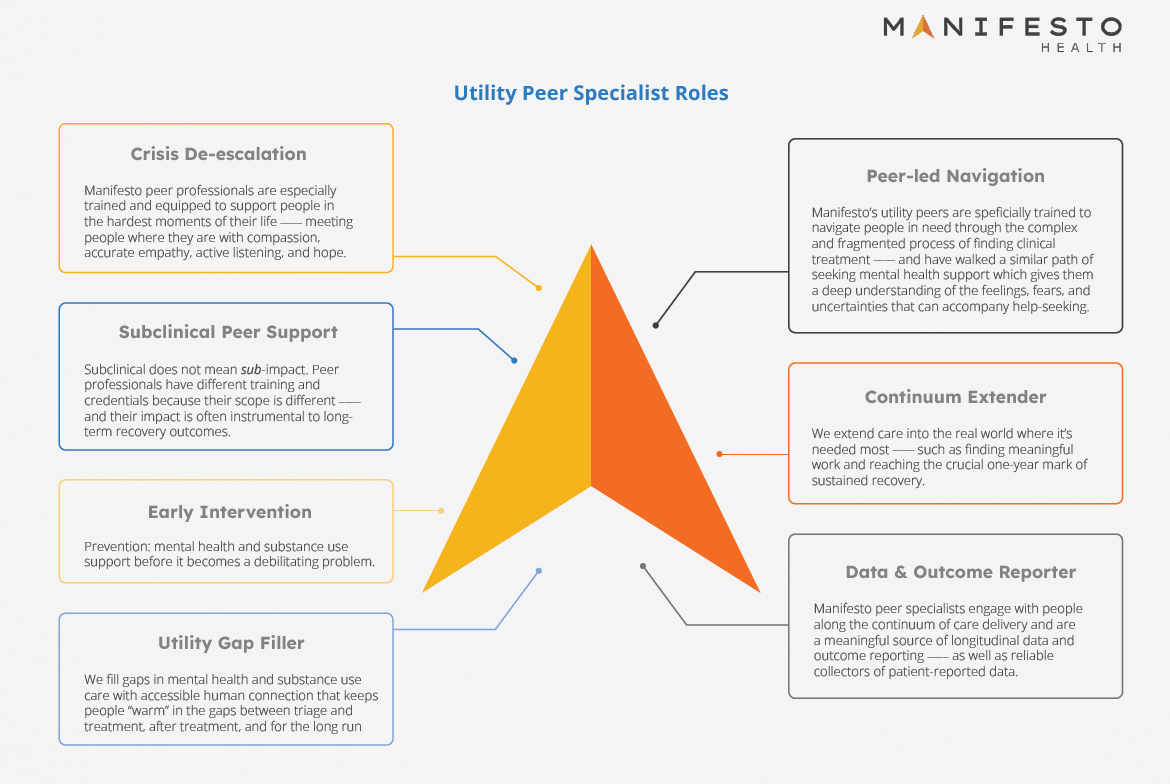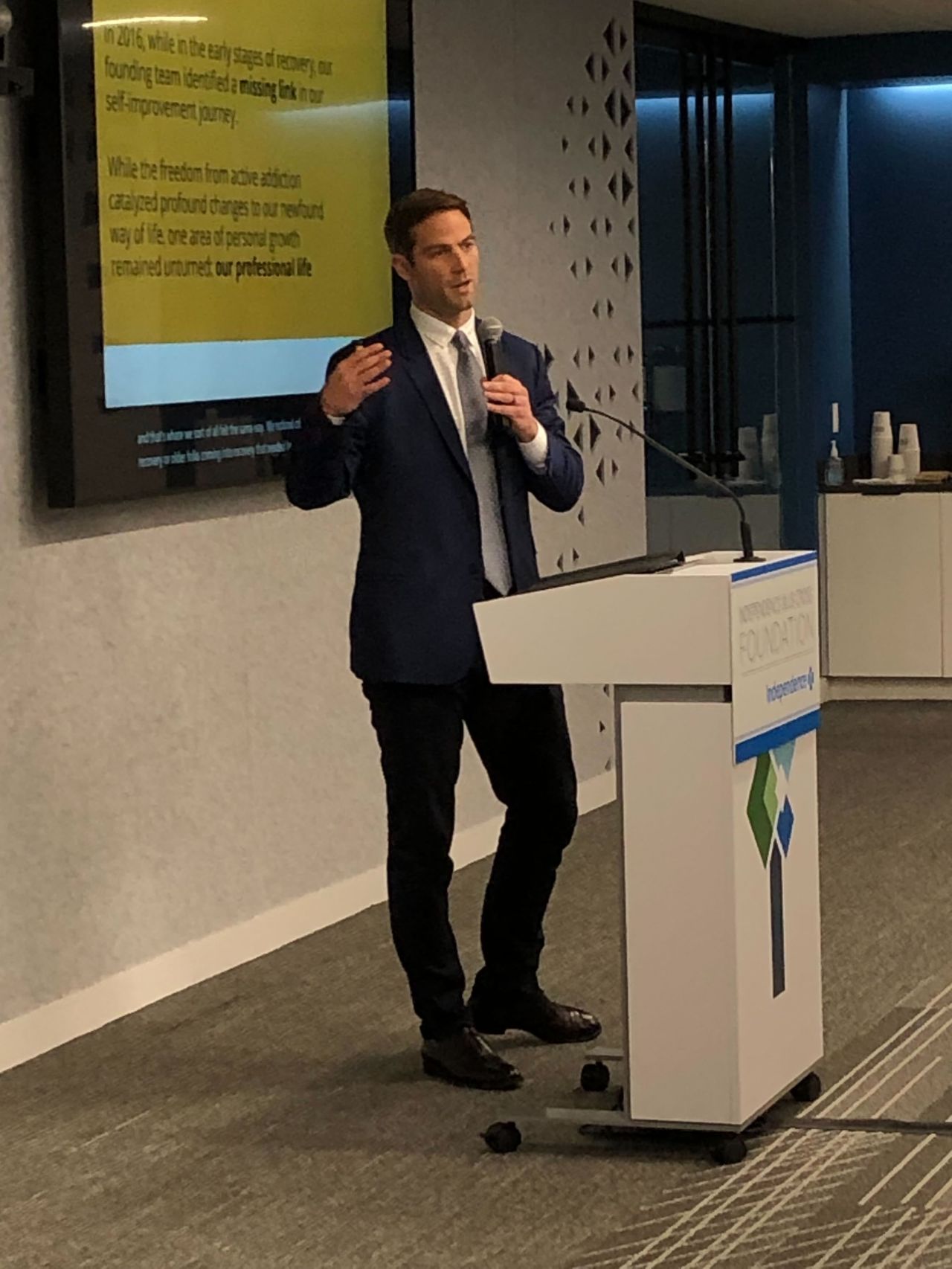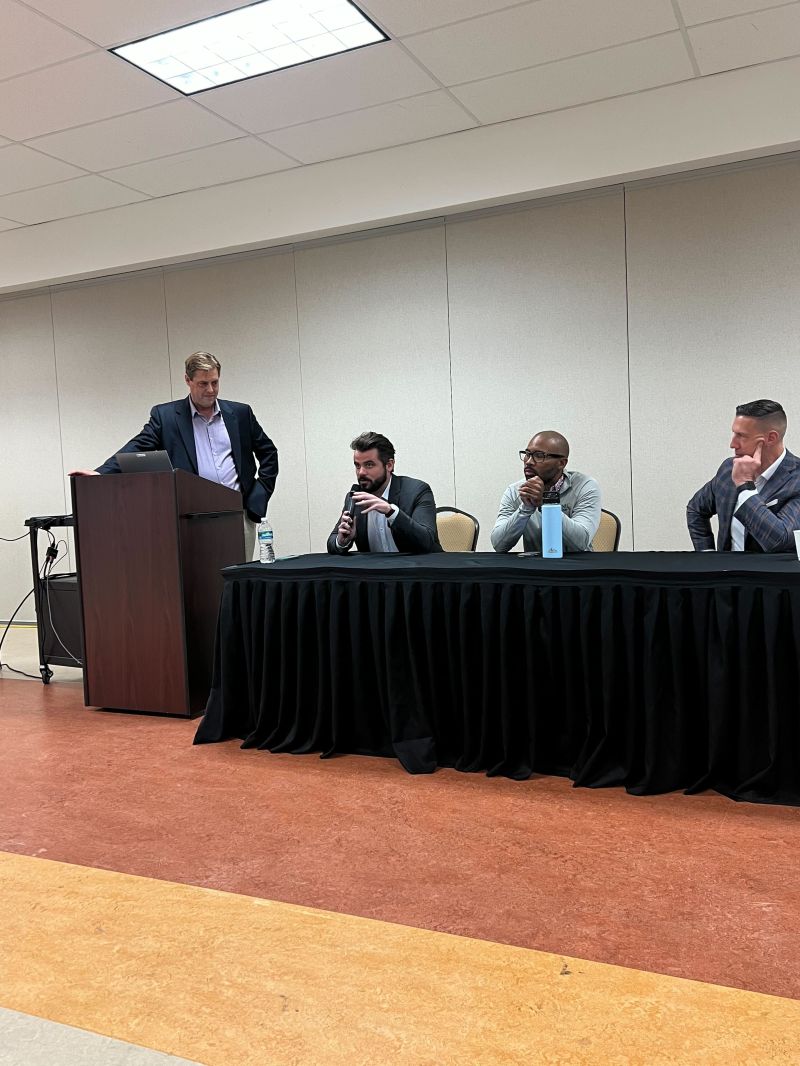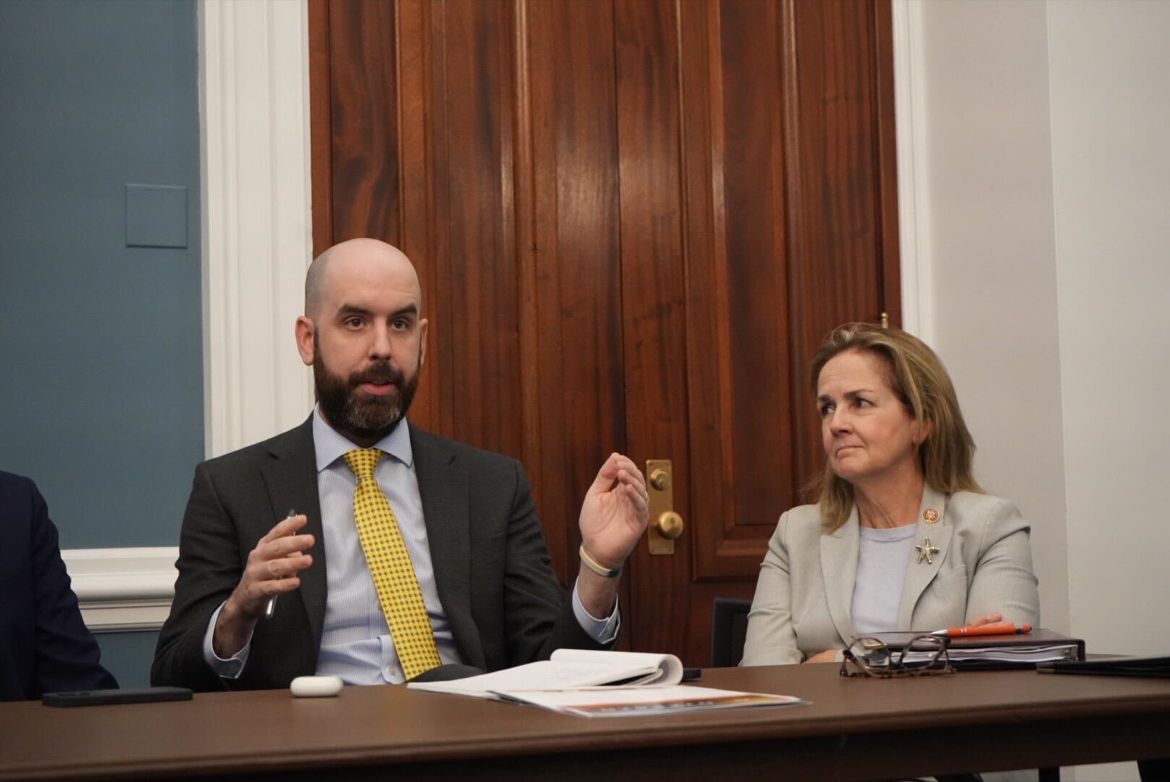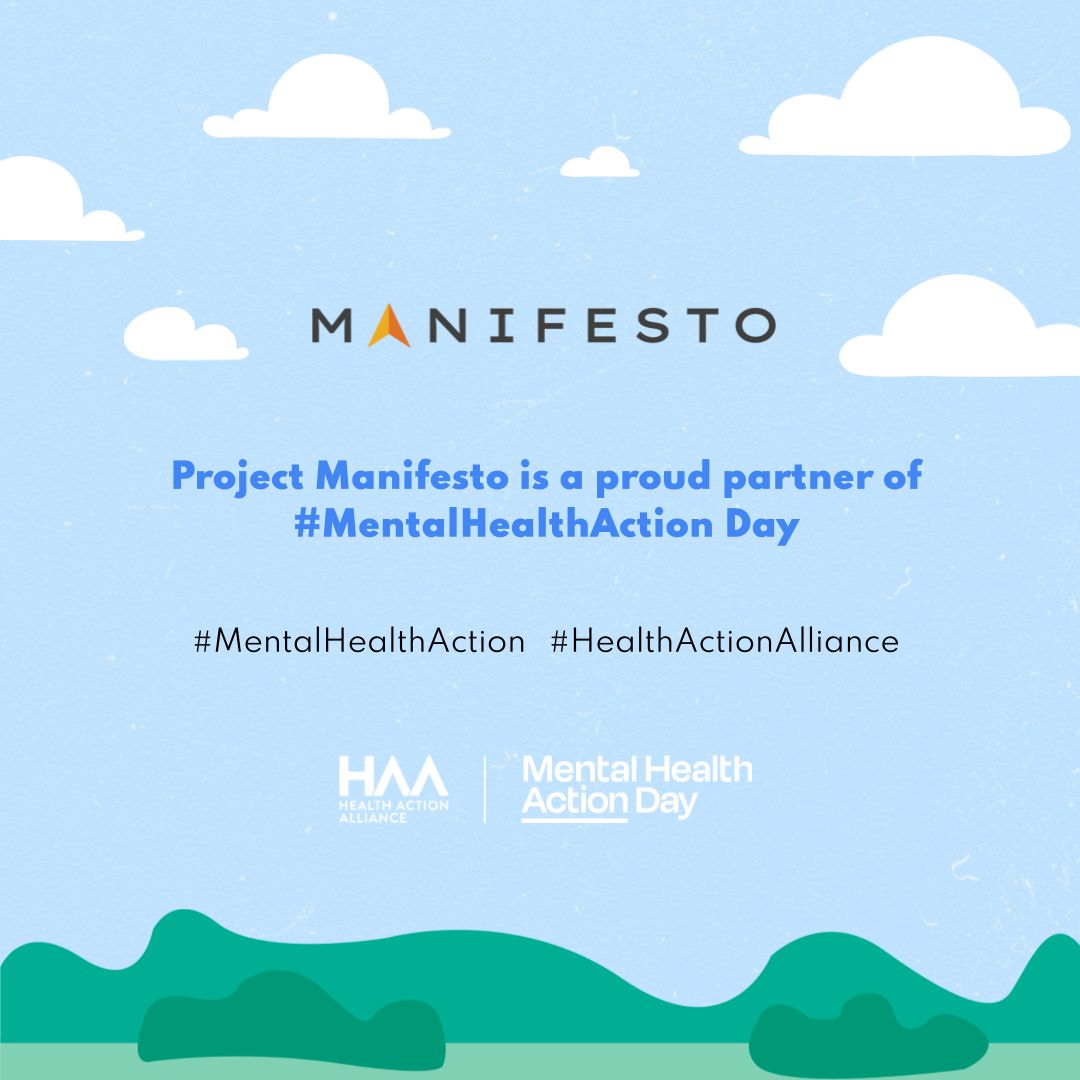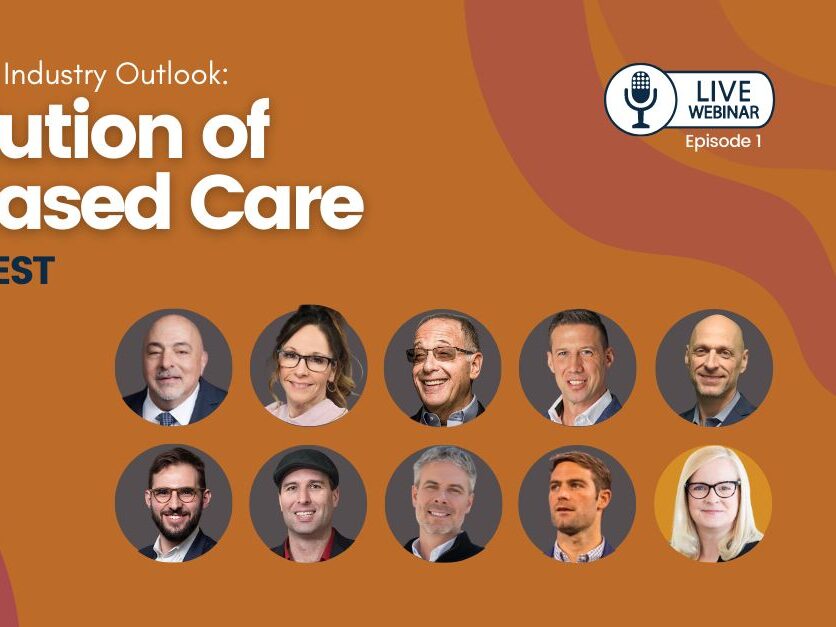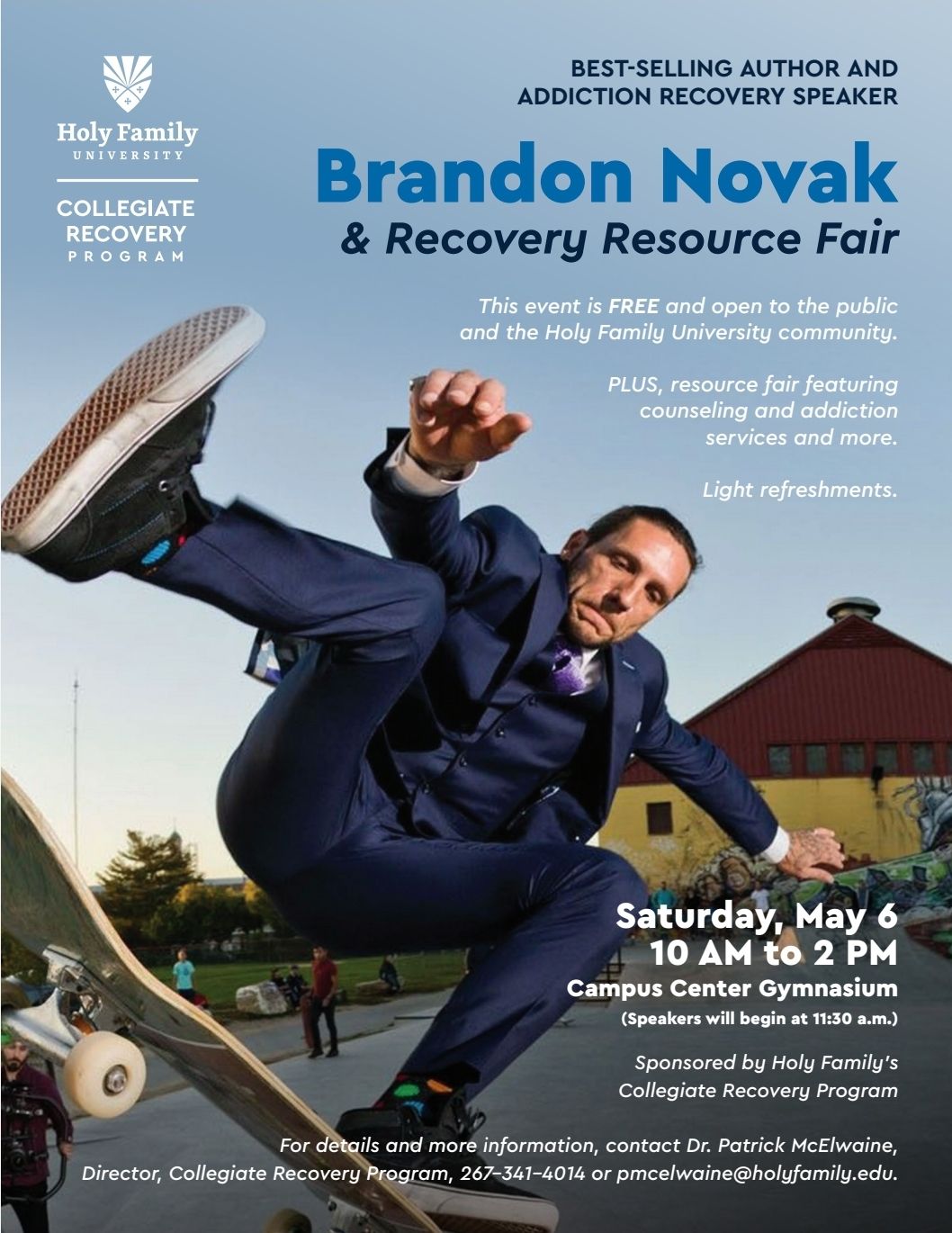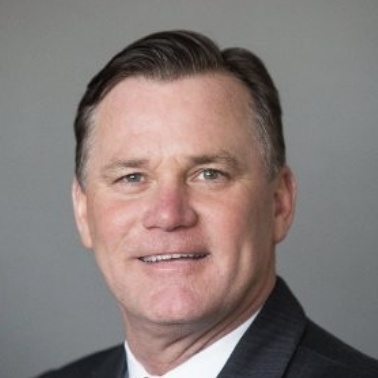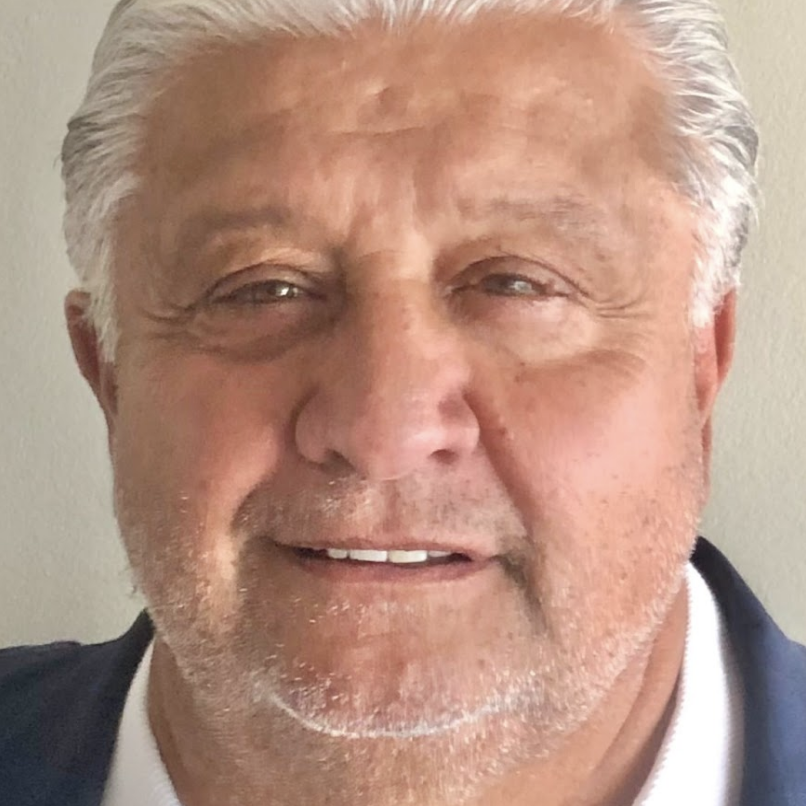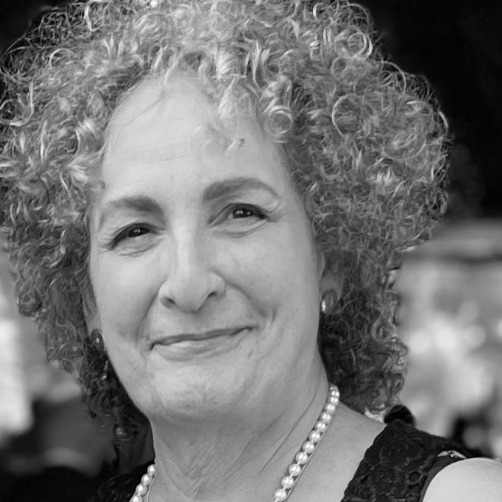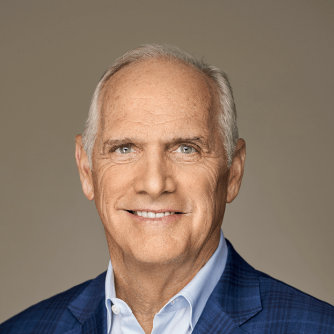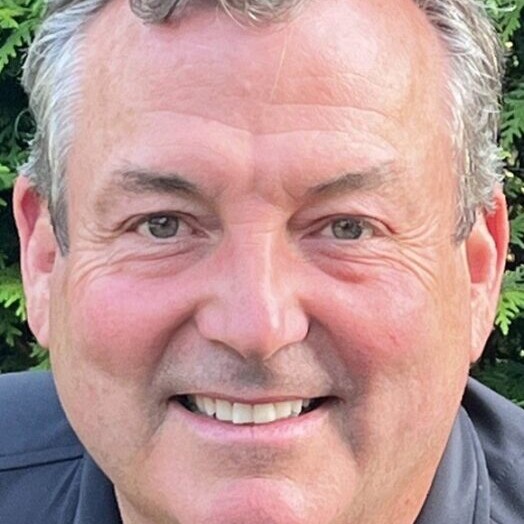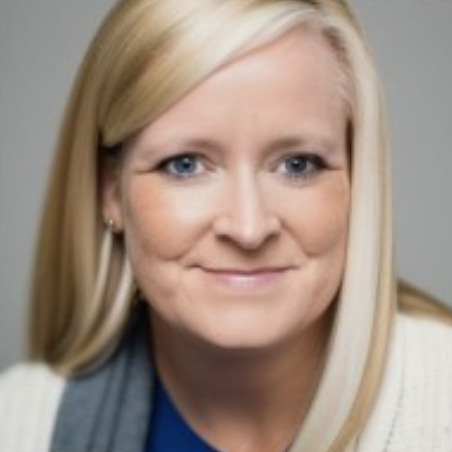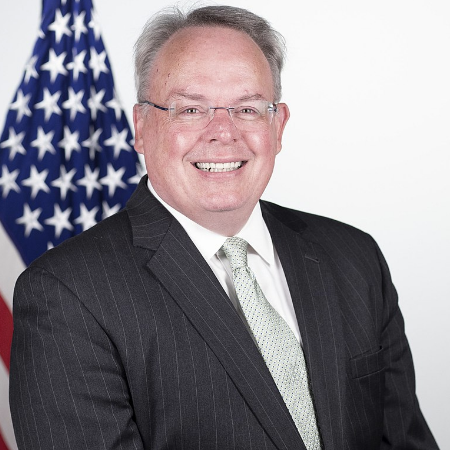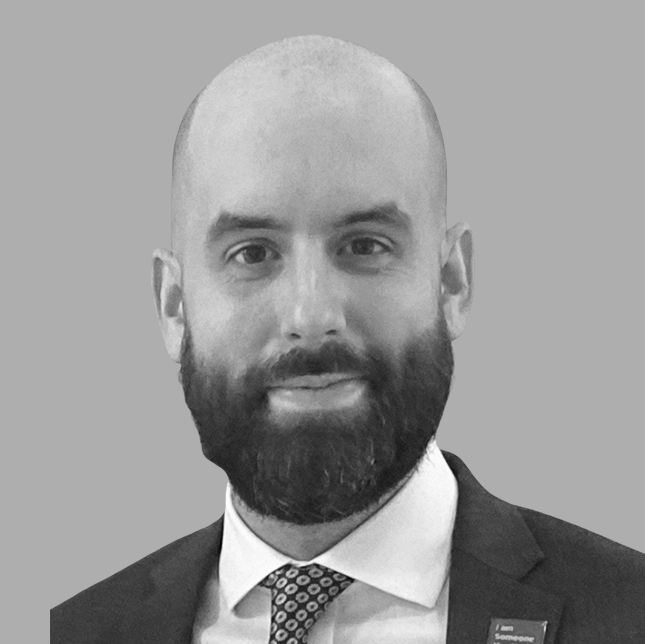Work-Recovery Balance
Work-Recovery Balance ©
Most are familiar with the term ‘work-life balance’ when describing the relationship between work and personal life. For workers in or seeking recovery, adding recovery efforts to the equation creates a new wrinkle to the balancing act.
At Manifesto Health, we know first-hand that recovery and work can intersect to create a positive force of motivation and sustainability. Engaging in meaningful work can ignite that unique and deeply personal part of yourself that feels like you're contributing, being creative, and growing. Reigniting your professional sense of self can be a huge gain to the recovery side of the balance scale. At the same time, we recognize that the extremes—such as the pesky “all or nothing” thinking—are something we need to keep in check.
Striking a balance between finding purpose and meaning in your work—and leaving room for the other important spheres of your life—can be an instrumental force in sustained recovery. Engaging in fulfilling work while maintaining the persistent self-work required for recovery is what we coin, Work-Recovery Balance ©.
Work-Recovery Balance refers to the equilibrium between the sense of purpose and satisfaction derived from one’s professional pursuits, the demands and responsibilities of work, the allocation of time and energy towards personal recovery efforts, and the nurturing of all other spheres of a values-based life.
For example, working all day and night with no room for the other components of recovery (e.g., connection, health, leisure, recovery support) is not a good recipe for longevity. Likewise, attending 5 mutual aid groups per day with no room for feeling productive through meaningful work is also not a very sustainable routine (although that may be what we need in the beginning). We can’t be all work, with no recovery—the same as we can’t be all recovery, with no work. Finding the synergy in the time and effort we spend in our work—and the time and effort we spend in our recovery and other personal domains—is what Work-Recovery Balance is all about.
The truth is—work and recovery are not mutually exclusive of one another. As we discussed, there are many recovery benefits to be found in your work. Experiences like feeling creative and productive—as well as connection to your coworkers, customers, or clients—are all recovery-sustaining elements of meaningful work.
The socialization and community that’s available in the workplace is often an advantageous stepping stone for people in early recovery transitioning to contributing roles in society. Yet, balancing the lifestyle and behavior changes of substance use management amidst the demands at work is no easy task. It’s one that requires fine-tuned self-awareness and intentional practice.
If you follow Manifesto Health, then you know our stance on meaningful work as a major driver of long-term success in recovery. Of course, not everyone will find all of their life’s purpose in their employment. In fact, purpose and fulfillment will never be solely achieved in one’s occupation. There will likely be parts of our jobs, or even days or weeks of our jobs, that we don’t necessarily love or jump out of bed for. “They call it work for a reason!” as the saying goes—and a lot of the time, work feels like work. The key is choosing and creating a career path that amidst the hard work and sacrifice, can also make you feel productive, skilled, connected to others, purposeful, and contributing to something bigger than yourself.
Manifesto’s curriculum pertaining to Work-Recovery Balance offers practical guidelines on navigating the uncharted waters of balancing work-related efforts amidst recovery-related ones.
We provide guidance and support for (a) the employee navigating a successful recovery journey while continuing to contribute meaningfully at work—as well as (b) the employer in creating a Recovery-Ready workplace to effectively support its employees in or seeking recovery.
Contact us today to learn more about how Manifesto Health can help your employees become more productive, healthy, and balanced in their substance use management.
What is Peer-led Navigation?
Short answer: Peer-led navigation refers to the aspect of peer support services where individuals who have lived experience with mental health and/or substance use challenges themselves assist people in navigating the complex landscape of mental health care. These peers use their personal experiences and training to guide and support others in accessing the appropriate mental health services, resources, and information they need to address their mental health concerns. This form of support is rooted in empathy, understanding, and shared experiences, and is a valuable — yet underutilized — component of the mental health care system.
The Manifesto Health Difference: Peer navigation is not a new concept. In fact, peer navigators have been utilized as linkage to community resources and access to care in a multitude of forms such as living with complex medical conditions and reintegration post-incarceration. Manifesto’s peer specialists are especially trained to navigate people in need through the complex and fragmented process of finding clinical treatment. They have walked a similar path of seeking mental health support which gives them a deep understanding of the feelings, fears, and uncertainties that can accompany help-seeking.
Currently, access to mental health and substance use care is burdened with barriers such as an alarming supply crunch of mental health providers and months-long wait lists for clinical treatment. Manifesto’s peer specialists are equipped to keep people “warm” and engaged in the waiting period before an intake appointment. Further, our peer specialists engage people post-treatment to effectively extend the continuum of support and help sustain recovery journeys for the long run — bolstering critical processes such as integrating back into the workforce in the event of a medical leave of absence.
Importantly, when navigation services are “peer-led” in mental health care, the peer professional leads the interaction with the patient. However, peer specialists are not trained or certified to diagnose, assess, or recommend specific treatment levels or modalities. Supervision of the peer professionals by Manifesto Health’s expert clinical team enables the efficient and evidence-based triage process to treatment providers when clinical needs and criteria arise.
Peer-led navigation has demonstrated efficacy by:
- Increasing capacity to navigate service systems and advocate for coordinated and integrated care and support
- Having a peer worker provide non-clinical support to people experiencing mental health and substance use issues and supporting them while navigating the service system
- Integrating social connection within mental health care
- Addressing the broader social determinants of health and factors that contribute to distress and mental health challenges (such as homelessness or not having a primary care practitioner)
- Supporting service systems where there is a workforce shortage and/or overburdened workload of mental health clinical staff, such as underserved and rural areas
Stay tuned for more posts describing the versatile roles of Manifesto’s utility peer specialist (see graphic) such as Crisis De-escalation, Early Intervention, Data & Outcome Reporting, and more!
New Product Guide
We are excited to present our latest Product Guide for Employers!
Manifesto’s mission originated in the workplace: Building a Recovery-Ready Future for Individuals and the Companies They Work For.
Recovery-Ready is not just a stamp of approval for attending a training. It means that a company is committed to supporting its greatest asset — its people – with access to proactive mental health and substance use services within a culture of compassion — free from the barriers of stigma and disregard that have plagued workplaces for far too long.
Read on to learn how Manifesto can proactively make your organization Recovery-Ready with digital peer support and peer-led navigation services that enhance accessibility to human connection and fill costly gaps in substance use and mental health care.
Recovery Ready Summit
We were honored to participate in the Recovery Ready Summit hosted by the Independence Blue Cross Foundation and their meaningful partnership with The Association of Recovery in Higher Education (ARHE).
As a direct result of IBX Foundation's mission to establish and expand recovery support on college campuses, Pennsylvania is now leading the nation in the number of Collegiate Recovery Programs. And the work is just getting started — colleges and universities located in Southeastern Pennsylvania interested in establishing or expanding a collegiate recovery program are encouraged to apply now for grant funding.
Our CEO, Dan Hilferty, Jr., and Head of External Affairs, Patrick Flynn, presented on Manifesto's peer support services for individuals in recovery entering the workforce — as well as our recovery-ready workplace solution that help employers create a company culture that openly supports employees in or seeking recovery.
Treasure Coast Opioid Summit
We were thrilled to join the conversation at the Treasure Coast Opioid Summit in Martin County, Florida.
Our own, Dr. Mullen, presented with other subject matter experts including David Nash, PhD, PMP, Eric J. Gremminger, ICADC, SAP, James Carroll, moderated by Micah Robbins.
Patrick Mullen, Psy.D. spoke about the complexity of the opioid crisis and its intersection at many contributing issues such as underlying mental health conditions, trauma, disconnection, economic and educational disparities, stigma, discrimination, access to healthcare, limitations in mental health care funding/reimbursement, illicitly-manufactured synthetic opioids, and more.
While no single solution can solve the opioid crisis, Manifesto's peer support platform is aiding in the efforts to expand the mental health workforce, improve access to a natural and humanistic form of support, and lengthen and enhance the continuum of care with peer specialists and peer-led navigation services that bridge gaps in mental health care.
Congressional Bipartisan Fentanyl Prevention Caucus
Manifesto on the Hill!
Today, our Head of External Affairs, Patrick Flynn, presented to the Congressional Bipartisan Fentanyl Prevention Caucus alongside other experts and advocates, Dr. Donald Stader, Dr. Sally Satel, and Dr. Kevin Sabet.
Patrick spoke about the importance of expanding the behavioral health workforce, improving access to care, and enhancing the continuum of care with frontline peer support services that combat the devastation of the current opioid and fentanyl crises.
Learn more about the Fentanyl Prevention Caucus here.
New National Standards for Peer Support Workers
“States recognize the value that the peer workforce brings to behavioral healthcare and are exploring ways to support and advance these critical services” — SAMHSA spokesperson
SAMHSA recently released national model standards for certifying peer support workers. The primary goal of improving standards and certification processes for peer support specialists is accelerating the universal adoption, recognition, and integration of the peer mental health workforce across domains of the healthcare system. SAMHSA collaborated with federal, state, tribal, territorial, and local partners, including peer specialists, to develop national standards inclusive of substance use, mental health, and family peer certifications. These standards aim to mitigate the behavioral health workforce shortage by improving quality and access to a natural, humanistic, and effective form of care that is currently underutilized.
In March of 2022, President Biden announced his administration’s strategy to address our nation’s mental health crisis. This national mental health strategy seeks to strengthen system capacity, connect more Americans to care, and create a continuum of support — transforming our health and social services infrastructure to address mental health holistically and equitably. A major goal within this systemic strategy is facilitating the adoption and implementation of a broader and versatile peer support workforce across the spectrum of healthcare sectors.
Peer support services have gained recognition over the past several decades as a vital component of mental and behavioral health services. Peer support workers use their lived experience of recovery, combined with professional training and supervision, to assist people in initiating and maintaining recovery. Through shared understanding and mutual empowerment, peer support workers can fill the gaps in support that clinical care cannot reach. A robust body of empirical evidence support peer specialists’ effectiveness in a myriad of positive outcomes including increased treatment retention, improved access to social supports and other social determinants of health, as well as reduced misuse recurrence, criminal justice involvement, and recidivism to hospitalizations and residential treatment (see our prior post for references). These benefits would not only improve care and health outcomes but also significantly lower the overall cost of behavioral healthcare.
The need for standardized national standards arises from the growing demand for consistency, competence, and accountability in this evolving field. These standards act as a benchmark — ensuring that individuals seeking peer support receive the highest quality of care, regardless of their location. Additionally, issues including reimbursement and state license requirements have set up barriers that organizations face when attempting to employ the peer workforce. While the new standards do not substitute for any state certification, their goal is to hasten universal adoption, recognition, and integration of the peer mental health workforce across the country.
There are over 30,000 people who have overcome addiction and struggles with mental health that want to assist those who are currently struggling, Samir Malik, CEO of firsthand, told Behavioral Health Business. These national standards are a formative guide in the efforts to fulfill workforce gaps — and the growing need for peer support specialists to use their lived experience and versatile skillset to help individuals navigate their lives and stay on track with their self-directed goals and values. The model standards aim to standardize certification across the different forms of peer support — mental health, substance use, and family support — while recognizing the commonality and differences between them. SAMHSA outlines the education, hours of training, work experience, and examination requirements for peer support workers
The introduction of these new national standards on peer support certifications marks a significant milestone in the field of behavioral health services. These standards have the potential to elevate the quality, accessibility, reach, flexibility, and acceptability of peer support services — ensuring that individuals receive consistent, competent, and ethical care. As peer support continues to gain recognition and impact lives in its natural, humanistic form — the peer workforce will further solidify its position as an invaluable resource on the path to recovery and well-being.
Reach out to Manifesto directly at info@manifestohealth.com to learn more about how we can enhance your patients, members, or employees health and wellness for the long run.
Mental Health Action Day
At Manifesto Health, we know that a healthy and supportive workplace culture leads to healthier, purpose-driven workers. In honor of #MentalHealthAction Day, we plan to help our employees and members take one hour for their mental health by getting connected with nature, which has been proven to positively benefit physical and psychological well-being.
Ideas for connecting with nature:
-Try a walking meeting
-Enjoy a meal outdoors
-Take your pet to the park
-Go for a swim
-Visit a local nature preserve or garden
#MentalHealthIsHealth #peersupport #RecoveryReady
Behavioral Healthcare Industry Outlook Panel
Join us on May 19th for the first of our live webinar series, Behavioral Healthcare Industry Outlook, featuring leading voices in the behavioral health industry.
With an estimated one in four adults having a diagnosable mental health condition and over 60 million people using substances, the need for person-centered, culturally appropriate, high quality behavioral health treatment has become a top priority in the United States. These disturbing statistics have led to a nationwide push to enforce parity laws, prioritize health equity, and integrate physical and behavioral health. In addition to expanding access and proving the care being offered is effective, stakeholders in the behavioral health field are calling for a corresponding change to the reimbursement model, one where incentives are based on value instead of volume. The result has been an accelerated push towards Value-based Care (VBC) contracts.
Hear from the expert panelists:
Tony Rocchino, Former Health Insurance Executive
Serenna MacLachlan MS, MAC, CADC-III, QMHP, CEO, SLO Recovery Center
Stu Segal, Owner & Consultant, @Strategic Solutions in Health
Eric J. Gremminger, ICADC, SAP Gremminger, Co-Founder & CEO, ERPHealth
Mike Lifshotz, Chief Executive Officer, Hatch Compliance
Gregory Keilin, Co-Founder / Chief Strategy and Growth Officer, Prosperity Behavioral Health
Nick Jaworski, Chief Executive Officer, Circle Social Inc.
Ben Dittman, Senior Vice President, Partnerships - Kipu Health
Dan Hilferty Jr., Co-Founder & CEO, Manifesto Health
Moderated by Cori E. McMahon, Psy.D., NCCE, Chief Clinical Officer at ERPHealth
Sign up today: https://lnkd.in/g86_dCTi
Collegiate Recovery Program (CRP) Resource Fair at Holy Family
Can't wait to support the Collegiate Recovery Program at Holy Family University led by our friend and fellow advocate, Dr. Patrick McElwaine!
Join us and many other recovery resources on Saturday, May 6th for this FREE community event that promises to be fun & impactful!



